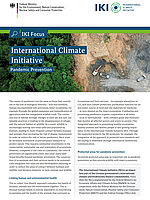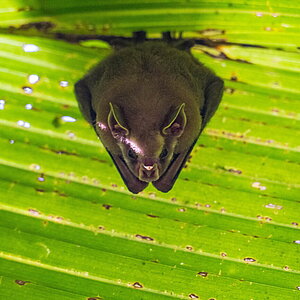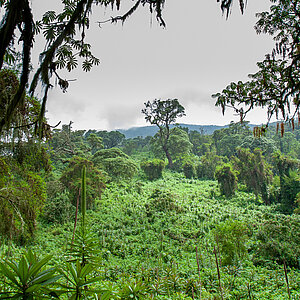“It requires breaking down a number of barriers”
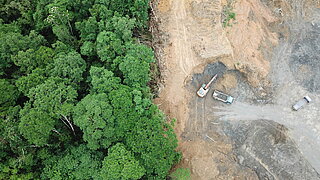
With the Nature 4 Health Fund, launched at the end of 2021, the IKI supports the prevention of potential pandemics. Doreen Robinson, Head of Biodiversity & Land at UN Environment Programme (UNEP), talks in an interview about the concrete measures and goals of the fund.
One of the aims of the One Health approach is to prevent new novel zoonotic infectious disease pandemics. Can you explain this approach in a few words?
One Health is a holistic approach to human, animal and environment health. It is inherently multidisciplinary and systemic with health being much more than the absence of disease. The approach is inclusive across all levels of society and focuses on ensuring the health of all species, including the human species, as well as protecting nature and ecosystems which are foundational for providing life-sustaining food, water, air and other services. In recent years, the evidence has shown that as we increasingly erode and encroach on nature, humans are shifting factors that contribute to health threats including the spread of zoonotic diseases.
What is the most important aspect of the One Health approach?
The most important aspect of One Health is recognizing the interdependencies of human, animal and environment health. We cannot have one without the others. An investment in nature and ecosystems is an investment in human well-being. Successful societal responses to growing health hazards must support all dimensions of health if our responses, and more importantly our preventative measures, are to be successful.
Why is it key in the approach particularly to include biodiversity and climate change? Has this gained acceptance in the implementation of One Health? And why?
Biodiversity is the foundation for all life on earth, providing the food, medicines and ecosystem services needed for clean air, water and soil. Traditional and indigenous knowledge from communities living with biodiversity and nature has and continues to offer nature-based solutions to holistic health. Yet human activity across the globe is driving loss of species and degrading ecosystems and all of this exacerbated by climate change. The dangerous trends of biodiversity loss and climate change together threaten to unravel human health and well-being, through increased extreme events and natural disasters like droughts, floods, wildfires and heat waves, increased human and animal sickness and millions of deaths annually from pollution and unsafe water and contributing to the emergence and spread of novel zoonotic infectious diseases. The One Health community has increasingly recognized the need to address these environmental aspects of health. In part, the global pandemic has helped to raise awareness on the issue with decision-makers and leaders. Interdisciplinary science and systemic approaches to health, including Germany and other country support for the One Health High-Level Expert Panel co-led by the Food and Agriculture Organization (FAO), World Organisation for Animal Health (WOAH), UN Environment Programme (UNEP) and World Health Organisation (WHO) also contributes towards a greater understanding of the environmental aspects of health.
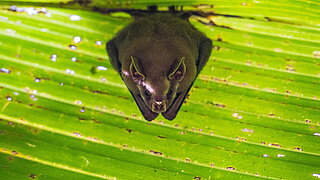
What are the goals of the Nature 4 Health Fund?
The Nature for Health (N4H) Fund aims to prevent future pandemics by fostering human, animal and environmental health. Over an 8-year period, N4H will mainstream preventative and multi-sectoral One Health approaches at global, regional, national and subnational levels. Working in partnership with policy makers, experts and other stakeholders, N4H will accelerate, generate and disseminate evidence on the links between biodiversity, climate and health, develop holistic and coordinated policies, actions and support decision makers and other relevant actors through capacity building, knowledge sharing and institution building to prevent future pandemics and enhance planetary health.
How are the goals to be achieved?
UNEP and partners will apply collective multi-disciplinary skills to operationalize One Health in country-appropriate contexts. Inclusive national and regional diagnostics and consultation processes will assess current nature, climate change and health activities to inform demand-driven strategies. We will work in countries and regions where risks for biodiversity and the spillover of zoonotic diseases are high to co-create multi-disciplinary evidence on the links between nature, climate change and health as a basis for decision-making. We also enhance preventative One Health action and policies by addressing the links between nature, climate change and health and provide capacity building, knowledge management, advocacy and awareness raising with respect to the links between nature, climate change and health. Another goal is to create shared, inclusive and lasting One Health collaboration and governance structures that facilitate coordinated preventative action and policy.
What will the fund's work look like in concrete terms?
The fund will support countries to implement practical approaches to One Health on-the-ground in some of the most vulnerable countries. A key aspect of the work brings stakeholders from across sectors and society together to co-construct an understanding of One Health challenges and opportunities using science and evidence, including expert and traditional knowledge. This requires breaking down a number of barriers – from institutional and financial barriers that prevent medical, veterinary and environmental experts from working together, to scientific barriers that inhibit sharing of intelligence, to a limited cross sectoral awareness of nature and health linkages to incomplete legal and policy frameworks to incentivize holistic approaches to health.
One aspect of its work is policy advice. What concrete measures can these be?
The co-creation and grounding in specific technical, cultural and institutional aspects of risks and opportunities is essential for effective One Health approaches. However, some critical areas of policy interventions needed to mitigate environmental risks driving up pandemic threats would include effective sustainable meat and agriculture regulation, improved regulation and monitoring of sustainable use of biodiversity, protecting ecosystems and their services, and policies to secure ecological connectivity in the face of shifting agroecological zones tied to climate change.
The concrete measures for risk reduction and pandemic prevention are also to be implemented at the local level. Can you outline possible examples of this?
There are many concrete measures that can be taken. For example, improved disease surveillance and coordinated risk responses at the local level help detect and prevent the spread of disease. Local communities and managers often have highly valuable information, particularly in remote natural areas, and we need to link them in with other health infrastructures. Restoration of forests, wetlands and all ecosystems delivers co-benefits across human, animal and environmental health domains.
In which countries or regions would such measures make the most impact and why?
Applying One Health is relevant in every single country and region. The recent pandemic has made it clear how interconnected we all are. When it comes to zoonotic diseases with pandemic potential, the weakest links in the chain really matter. Therefore, investments in less developed countries that are at high risk of emergence of zoonotic diseases are particularly important.
How will the fund support the implementation of the Global Plan of Action for Biodiversity and Health to be adopted by the CBD?
Parties to the Convention on Biological Diversity recognized the link between biodiversity and health and called for systemic approaches for many years now. Earlier this year in convention meetings in Geneva, Parties specifically called for progress to be made to finalize the Global Plan of Action for Biodiversity and Health by the 16th Conference of Parties. The Secretariat of the Convention is a key partner in the fund and its work in countries will inform final development and implementation of the Plan of Action.
The link has been copied to the clipboard
Contact
IKI Office
Zukunft – Umwelt – Gesellschaft (ZUG) gGmbH
Stresemannstraße 69-71
10963 Berlin
The interview partner

Doreen Robinson is Head of Biodiversity & Land at UN Environment Programme (UNEP)



